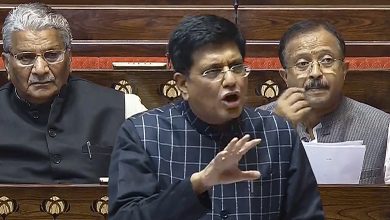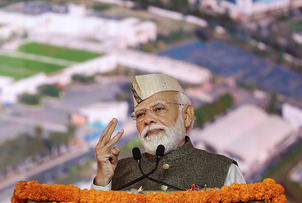Evidentiary value of close relatives should not be rejected for being associated with deceased: SC
New Delhi, Sep 03 (PTI):
The evidentiary value of close relatives or interested witnesses should not be rejected on the ground of being associated with the deceased in a case and the law does not disqualify them to be produced as a witness, the Supreme Court said on Friday.
A bench comprising Justices S A Nazeer and Krishna Murari made the observation while upholding an order of Gujarat High Court which convicted and sentenced for two years a man and his mother under sections 306 (Abetment of suicide) and 498-A (husband or relative of husband of a woman subjecting her to cruelty) of the Indian Penal Code (IPC).
The apex court said that most often the offence of subjecting the married woman to cruelty is committed within the boundaries of the house which in itself diminishes the chances of availability of any independent witness.
Even if an independent witness is available, whether he or she would be willing to be a witness in the case is also a big question because normally no independent or unconnected person would prefer to become a witness for a number of reasons, the bench said.
There is nothing unnatural for a victim of domestic cruelty to share her trauma with her parents, brothers and sisters and other such close relatives, it said.
“The evidentiary value of the close relatives/interested witness is not liable to be rejected on the ground of being a relative of the deceased. Law does not disqualify the relatives to be produced as a witness though they may be an interested witness,” the apex court said.
The top court said that when the court has to appreciate the evidence of any interested witness it has to be very cautious in weighing their evidence or in other words, the evidence of an interested witness requires scrutiny with utmost care and
caution.
The Court is required to address whether there are any infirmities in the evidence of such a witness; whether the evidence is reliable, trust-worthy and inspires the confidence of the Court, the bench said.
“Another important aspect to be considered while analyzing the evidence of an interested witness is whether the genesis of the crime unfolded by such evidence is probable or not.
“If the evidence of any interested witness/relative on careful scrutiny by the Court is found to be consistent and trust-worthy, free from infirmities or any embellishment that inspires the confidence of the Court, there is no reason not to place reliance on the same,” the bench said.
As per the prosecution case, Gumansinh Chauhan married the deceased’ on April 27, 1997 and after the marriage, the deceased was residing in her matrimonial home and her husband was constantly asking the deceased to bring Rs.25,000 from her father in order to purchase buffaloes as, he was keen on doing milk business.
Due to poor financial conditions of the father of the deceased, she was not able to satisfy the husband’s demand , therefore, he frequently started beating the deceased, while her mother-in-law used to pick up quarrel with her on the pretext that she neither knew how to cook nor do any house-hold work properly, it said.








